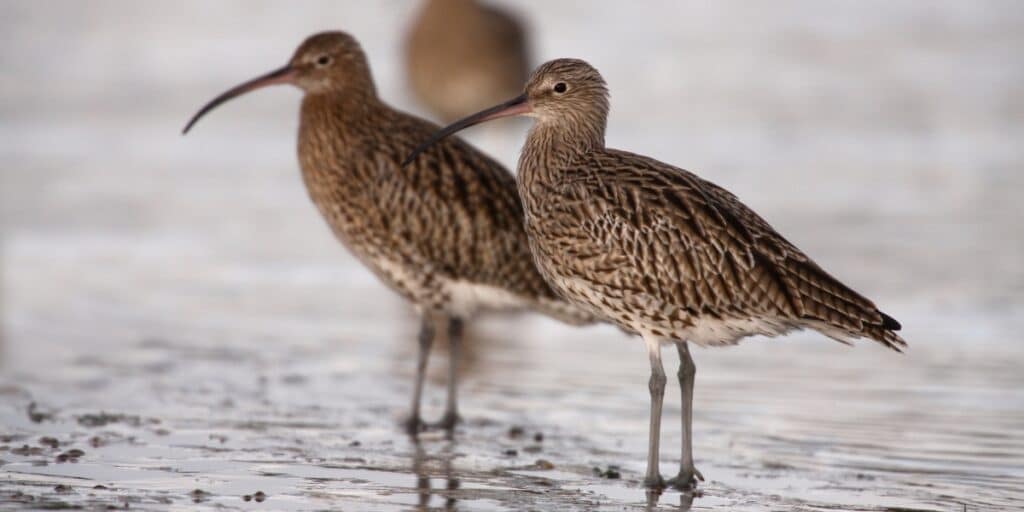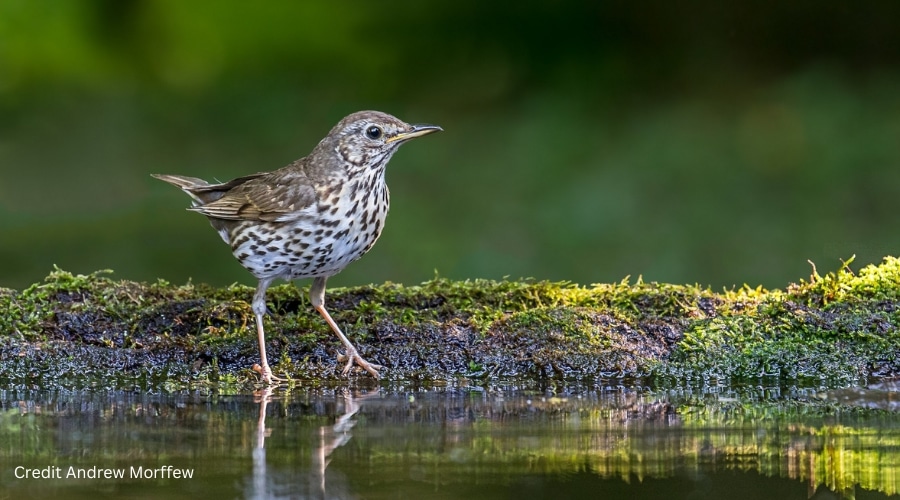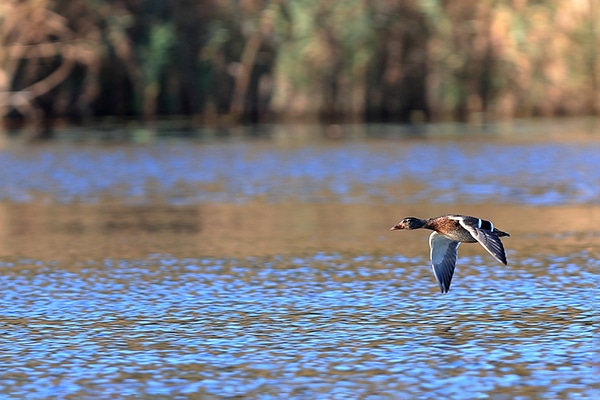
A decade of dedication to wader conservation
The Lough Erne Wildfowler’s Council (LEWC) celebrated ten years their conservation work by organising a wader conservation conference.
Get information on the legal shooting season for mammals and birds in the UK.
Learn about our current conservation projects and how you can get involved.
Comprehensive information and advice from our specialist firearms team.
Everything you need to know about shotgun, rifle and airgun ammunition.
Find our up-to-date information, advice and links to government resources.
Everything you need to know on firearms law and licensing.
All the latest news and advice on general licences and how they affect you.

The tenth Game & Wildlife Conservation Trust (GWCT) Big Farmland Bird Count launched today 3 February and runs until 19 February.
This year is the GWCT Big Farmland Bird Count’s tenth birthday. People are being asked to take just 30 minutes to count the birds they see on their land, then submit their results to the GWCT.
Counting allows shoots to measure the impact of the conservation work that so many of them carry out. This nationwide voluntary effort enables the GWCT to build a picture of the status of the UK’s farmland bird species.
The GWCT’s Dr Roger Draycott, who now runs the count, agreed: “In the ten years since the GWCT Big Farmland Bird Count began, the commitment shown by an ever-growing number of game keepers and farmers to supporting and monitoring birds and other wildlife is inspiring and should be celebrated.”
The GWCT Big Farmland Bird Count is, said Roger, “not just for farmers”. “It is a great way for shoots to demonstrate what they do to support wild birds as well as game, which is often unrecognised by the wider public, and for us to show our appreciation for all those gamekeepers, farmers and other land managers who work so hard.”
Ahead of this year’s count, its founder Jim Egan, is encouraging land managers to take part. He said: “Understand that what you do makes a difference and gives the GWCT a superb opportunity to shout about all the good work done on shoots and farms.”
More than one-in-four of the UK’s bird species is in serious trouble, according to the most recent assessment of the status of the UK’s birds, the Birds of Conservation Concern (BoCC) list (2021).
“We will not halt the alarming declines of species such as curlew and skylarks if we leave it to nature reserves and national parks alone,” commented Roger. “72% of the UK’s countryside is managed by farmers, gamekeepers and land managers, so it is vital that we are all engaged in the effort to reverse biodiversity decline.”
“A few small changes can make a big difference,” said GWCT Game & Wildlife Advisor Amber Lole.
With responsibility for so much of the UK’s land area, private land managers can make an enormous difference to the future of our wild birds.
“Modern farming methods mean that there is often not enough natural food for wildlife left in the countryside in late winter and early spring, causing what is known as the ‘hungry gap’,” continued Amber. “One of the best things you can do to support farmland birds is to provide extra winter seed food. Supplementary feeding is particularly beneficial for birds of conservation concern like grey partridge, yellowhammer and corn bunting.”
The use of ‘conservation headlands’ – wide field margins where little or no pesticides are used – is also very good for farmland birds. Allowing broad-leaved weeds to flourish boosts insect populations which are a key food-source for birds. Planting and managing hedgerows also provides crucial food, as well as nesting habitat and a safe haven from predators.
GWCT advisors encourage land managers to maintain small wet areas around the farm or shoot to help attract wading birds. Leaving an area of uncropped, cultivated land can also provide suitable nesting and foraging areas for birds which prefer to forage on open ground, such as the red-listed lapwing, skylark, stone curlew and turtle dove.
Find more advice on supporting wild birds, and on taking part in the GWCT Big Farmland Bird Count at bfbc.org.uk.

The Lough Erne Wildfowler’s Council (LEWC) celebrated ten years their conservation work by organising a wader conservation conference.

Project Penelope is here again, giving us the opportunity to get cracking with this exciting international conservation scheme.

After 10 years at the helm, BASC’s Glynn Evans has stepped down as chair of the England and Wales Poaching Priority Delivery Group.
Sign up to our weekly newsletter and get all the latest updates straight to your inbox.
© 2023 British Association for Shooting and Conservation. Registered Office: Marford Mill, Rossett, Wrexham, LL12 0HL – Registered Society No: 28488R. BASC is a trading name of the British Association for Shooting and Conservation Limited which is authorised and regulated by the Financial Conduct Authority (FCA) under firm reference number 311937.
If you have any questions or complaints about your BASC membership insurance cover, please email us. More information about resolving complaints can be found on the FCA website or on the EU ODR platform.
This website uses cookies so that we can provide you with the best user experience possible. Cookie information is stored in your browser and performs functions such as recognising you when you return to our website and helping our team to understand which sections of the website you find most interesting and useful.
Strictly Necessary Cookie should be enabled at all times so that we can save your preferences for cookie settings.
If you disable this cookie, we will not be able to save your preferences. This means that every time you visit this website you will need to enable or disable cookies again.
This website uses Google Analytics to collect anonymous information such as the number of visitors to the site, and the most popular pages.
Keeping this cookie enabled helps us to improve our website.
Please enable Strictly Necessary Cookies first so that we can save your preferences!
More information about our Cookie Policy